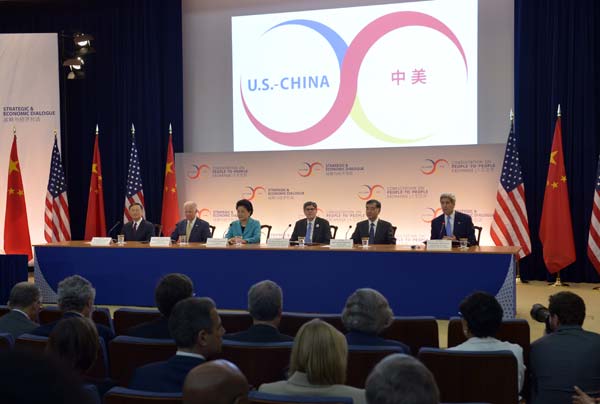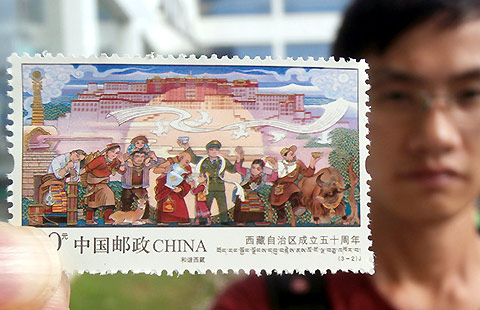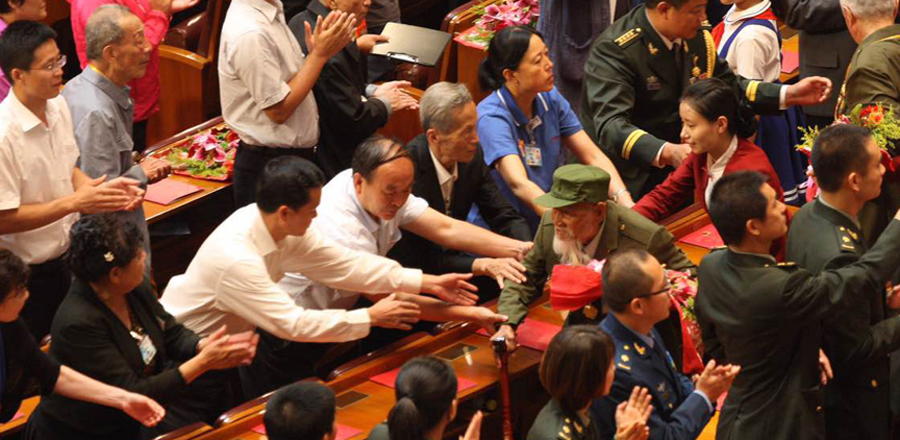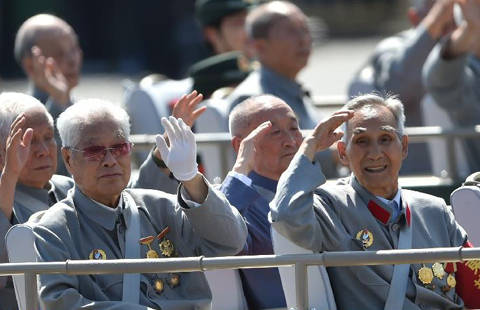Pundits cheer China-US talks
Updated: 2015-06-26 06:06
By CHEN WEIHUA in Washington and ZHAO SHENGNAN in Beijing(China Daily USA)
|
||||||||
 |
|
The seventh China-US Strategic and Economic Dialogue and the sixth China-US High-Level Consultation on People-to-People Exchanges concluded on Wednesday in Washington with a wide spectrum of achievements. [PHOTO BY YIN BOGU / XINHUA] |
The largest-scale annual meeting between China and the United States, which concluded Wednesday, has not only been praised by heads of the two countries' delegations but also by pundits on both sides.
China's State Councilor Yang Jiechi, Vice-Premier Liu Yandong, Vice-Premier Wang Yang and US Secretary of State John Kerry and Treasury Secretary Jacob Lew, who co-chaired the 7th China-US Strategic and Economic Dialogue (S&ED) and the 6th China-US High-Level Consultation on People-to-People Exchange (CPE) have all described the meetings as candid, constructive, productive and laying a good foundation for this September's official state visit to the US by Chinese President Xi Jinping.
The two countries reached consensus on more than 100 items each in the strategic and people-to-people tracks and more than 70 on the economic track.
Ted Carpenter, a senior fellow of defense and foreign policy studies at the Cato Institute, said it was especially encouraging that Chinese and US military officials have indicated that they will be in contact on a more frequent basis.
"Given the tense environment in both the South China Sea and East China Sea, increased bilateral communications between the two militaries is not only desirable, but essential," he said.
Carpenter said it is also encouraging that Chinese and US officials have adopted a low-key, non-confrontational approach to the sensitive issue of cyber hacking.
He said the fact that China bashers in Washington are unhappy about the direction and tone of the S&ED talks is a good sign that the Obama administration has adopted the right approach.
Zhiqun Zhu, a professor of political science and international relations and director of the China Institute at Bucknell University, said both the S&ED and CPE this time around were very successful.
Both sides came to the dialogues well-prepared, indicating they were serious about the relationship, he said.
"They were candid about their differences, but focused on areas of common interest and pledged to cooperate on a wide range of issues, suggesting the relationship is more mature now," Zhu said.
The dialogues were held at a time when tensions were high between the two countries over maritime disputes and cyber security, according to Zhu. "The dialogues helped arrest further decline of the relationship and put the relationship back on the right track," he said.
He believes that the dialogue has created an amicable atmosphere for President Xi's state visit in September, when more agreements are expected to be announced.
"So overall, it suggests that the two powers are more pragmatic now, realizing that confrontation must give way to cooperation in this most important bilateral relationship for both countries," Zhu said.
"They understand they will not see eye-to-eye with each other on a lot of issues, but mutual respect and cooperation are the only way to handle this complex relationship," he added.
Yanzhong Huang, a senior fellow for global health at the Council on Foreign Relations, said that by promoting and strengthening people-to-people exchange in areas such as public health, the CPE expands the scope of cooperation while broadening the constituency in support of a more robust and trustworthy relationship.
He said the S&ED has made progress in cyber security, market access, China's currency policy and issues over the disputed seas of East Asia.
"As the two countries seem to be caught in a downward spiral, maintaining the ascending trend in the US-China relations is particularly important for a healthy and constructive bilateral relationship," Huang said.
On Wednesday, Secretary Kerry refuted the notion that the bilateral relationship had been in a downward spiral at all.
David Dollar, a senior fellow at the John L. Thornton China Center of the Brookings Institution, said there were no big breakthroughs on the economic side.
"The two countries are negotiating a bilateral investment treaty and that seems to take a long time to complete. The discussions laid a foundation for some agreements when President Xi visits in September, such as including the yuan in the SDR (the International Monetary Fund's Special Drawing Rights)," he said.
Ni Feng, an expert on US studies at the Chinese Academy of Social Sciences, said Beijing and Washington had not shunned any thorny issues during the two-day talks.
Jia Xiudong, a senior international affairs researcher at the China Institute of International Studies, said the two countries share a consensus on controlling their differences, and this could not be resolved through just one round of dialogue.
- Three killed, 8 missing after fishing boat capsizing in S.Korea
- Migration crisis tears at EU's cohesion and tarnishes its image
- Britain signals move towards air strikes in Syria
- Snowden accepts Norwegian prize via video link
- Tokyo ditches Olympic logo amid new plagiarism allegation
- Japan criticized for protest over UN chief's visit to Beijing

 50th anniversary of Tibet autonomous region
50th anniversary of Tibet autonomous region
 Red carpet looks at the 72nd Venice Film Festival
Red carpet looks at the 72nd Venice Film Festival
 China beats Russia in 4 sets at volleyball World Cup
China beats Russia in 4 sets at volleyball World Cup
 8th Int'l Military Music Festival 'Spasskaya Tower' begins
8th Int'l Military Music Festival 'Spasskaya Tower' begins
 Downpour floods streets in Beijing
Downpour floods streets in Beijing
 Veterans attend V-Day anniversary gala show
Veterans attend V-Day anniversary gala show
 Military helicopters write number 70 high in the sky
Military helicopters write number 70 high in the sky
 Salute to veterans
Salute to veterans
Most Viewed
Editor's Picks

|

|

|

|

|

|
Today's Top News
Austria, Germany open borders to migrants
Central government steps up economic support for Tibet
China economy enters 'new normal' eyeing 7% growth rate: G20
Troop cuts signal path of peaceful development
Sino-Russian investment fund eyes more deals
Predicting Internet's future without a crystal ball
Silk Road Fund to expand ties with lenders
Intl community echoes Xi's speech at V-Day commemoration
US Weekly

|

|







